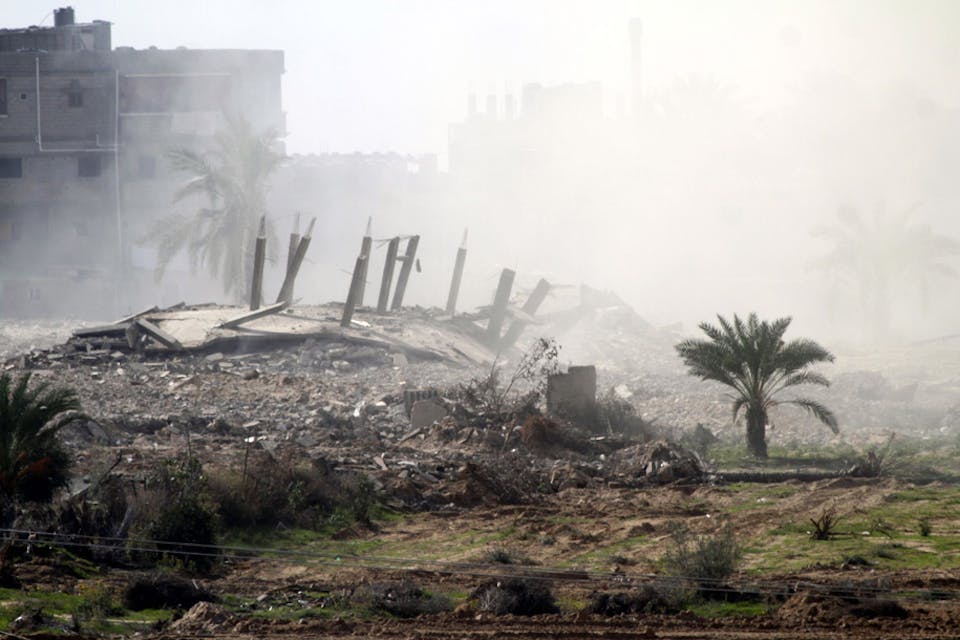
March 30, 2015
What Should Israel Do Now That Its Neighbors Are Collapsing?
By Lazar Berman, Gidi NetzerIsrael's formerly quiet borders are now ungoverned zones filled with guerrillas. How should the Jewish state adapt?
This past January, an Israeli airstrike on the Syrian Golan Heights killed up to twelve enemy fighters. These were not conventional Syrian forces, of the kind stationed across the mainly quiet frontier for decades. Israel’s pilots were after something new and far more troubling: Hizballah men (including senior commanders) and an Iranian general believed to have been scouting the border area for opportunities to carry out kidnappings, rocket attacks, and infiltrations into northern Israel. Meanwhile, in the very same volatile region, al-Qaeda-affiliated guerrillas and moderate Syrian rebels have been engaging in pitched battles with Hizballah and other Iranian-backed forces.
No quieter is the region hugging Israel’s southern border. Also in January, jihadists launched a series of attacks against Egyptian security forces in the Sinai, killing at least 30. The Egyptian government accused the Palestinian terror group Hamas of involvement in the attacks.
At first glance, these two violent episodes seem unrelated, one the product of the civil war tearing Syria apart, the other the result of alliances between jihadist groups and tribes holding longstanding grievances against Cairo. On closer examination, however, both incidents, as well as other developments taking shape on Israel’s borders, can be seen as products of a larger process driving events in the region.